Excessive work stress: Do we really want to know?
The consequences of excessive work stress can have far-reaching effects on the health of organizations and that of employees. The subject is negotiable with many employers as long as it fits within the agenda and interests of the organization. Once that is compromised then a feeling of insecurity often sets in for the employee and that ultimately creates even more work stress (with potentially unnecessary conflict situations).

The consequences of excessive work stress lurk for everyone, regardless of role or responsibility. Some are more stress resistant than others; there is no comparison in that either. Our work-life balance is also a strong influencer when it comes to the perception of excessive work stress.
Unwind
Work-related stress in the office is not a problem at all, if someone feels and takes the space and time to relax that same day. And this day in and day out. If the stress continues, our body will protest more and more in the form of back and/or neck pain, physical and mental fatigue, more frequent headaches and disturbed sleep. When you experience this for a long time, you are often already in the danger zone. Change is required and/or recovery time is needed for daily work stress. How often do we continue out of loyalty to our colleagues, customers and/or employer?
How often do we poke ourselves by saying: 'it's only temporary' or 'it will calm down in a few months'. As the physical and mental symptoms grow, the risk of (long-term) failure increases.
How do you not overstep your bounds?
Reducing work stress involves self-reflection and a bit of courage. If you want to be taken seriously by your employer, you must first take yourself seriously.
What can help with this?
Say "No" more often
Whew...we sometimes find this oh so difficult because it is often the hidden reaction patterns that make us keep saying "Yes" at all costs, even at the expense of our own health. Respectful assertiveness is not only valued by consciously enterprising employers but, when all is said and done, encouraged.
Monitor your work-life balance
Schedule plenty of relaxing and fun activities for yourself and/or with your family. This is at least as important as getting your work done.
Make your own plan
Start the day with your calendar instead of your email. What do you have left over from yesterday and what appointments do you have scheduled for today? If you don't make a plan for yourself, you become part of someone else's plan.
Very selective handling of email, mobile and group apps
Sign yourself away from anything that distracts you and that you only look at with half an eye anyway. 80% of the information stimuli you let in through these channels distract you from your plan. And turn off your email pop-ups to avoid further overstimulation.
Your breaks are sacred
This one is obvious, and it remains a challenge for many: having lunch in the cafeteria or outside and disconnecting from your work is beneficial for the body and mind.
Take plenty of micro-breaks in between
Just stretch your legs, meditate for a few minutes (unnoticed), do exercises to get back in touch with your body, some stretching exercises, prepare a nice drink. Make sure you have as relaxed a day as possible in which you guard your limits well.
Tips, tips, tips!
Some additional tips to reduce and preferably prevent excessive work stress:
- Keep your desk clean and organized;
- Move (and exercise) enough in ways that are appropriate for you;
- Complete your task before getting distracted by something or someone else;
- Find a quiet place when you need your concentration;
- If necessary, make a to-do list if that works fine for you;
- Don't over-schedule your schedule (40% per day to get things done, 60% for the rest);
- Get plenty of outdoor air daily;
- No email on your smartphone and work phone off when you are off!
- Discuss your limits and reality regularly with your employer;
- Start the day with the most tedious chores and finish with simple ones;
- Limit your accessibility, both in person and digitally. You decide when you are reachable and available!
- Drink and eat healthy. Find out what foods help and nourish you. Preferably seasonal ones. Limit consumption of alcohol, coffee, sugar and nicotine!
- Reflect on your workday. How do you want your day to go and how do you look back on it afterwards?
- Healthy expectation management (be honest about the feasibility of the agreements you make!)
- Plan your leave well in advance;
Everything check and checked off?
Wherever you work and whatever else you do, first and foremost you are human. So keep a close eye on your balance between exertion and relaxation. Get an overview of your work so you can plan and organize better. This will help you communicate clearly about everything on your plate. The result is better relationships with all your interlocutors and those to whom you are accountable.


